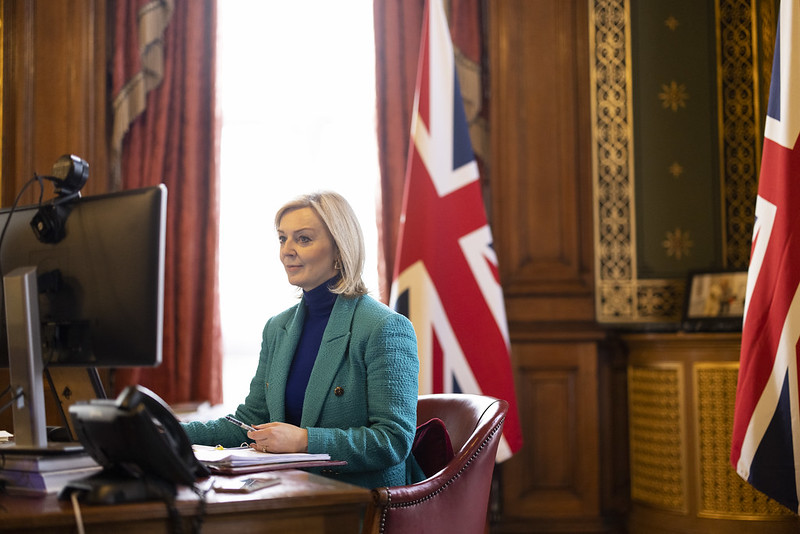As Liz Truss steps up to the challenge of leading the Tories – and the UK – it’s clear that she has her work cut out to rebuild the deep divides that have formed across the Conservative party and the government.
Stepping into a leadership role in an organisation with a fractious culture is a challenge for any new leader and is a situation we’re seeing unfold firsthand for the new UK prime minister.
Culture can either unite or fracture an organisation; it can be the glue that binds or the wedge that divides
Of course, the key challenge for Truss, especially being appointed after a period of organisational discord, is finding ways to unite her party with a common purpose. She must quickly bring her colleagues together to work cohesively towards setting and achieving aligned and consensual goals that will drive the nation and the Conservatives forward.
So what are the key considerations for the PM in uniting a disparate and fractured Tory culture? Where – and how – does she begin with nurturing her team? And what can HR leaders joining a company with a similarly disjointed culture learn from Truss’ conundrum?
Can Truss redefine Conservative ‘culture’?
Culture can either unite or fracture an organisation; it can be the glue that binds or the wedge that divides. Understanding the prevailing culture, and course correcting if necessary, is a key first step in building more open and aligned teams.
She may not be a life-long Tory, but understanding the values, assumptions and physical artefacts that drive the culture within her party will help her get to the heart of why her members will opt in or out of followship.
As a new leader coming into the party, it’s key that she invests time in listening to and understanding the needs of her fellow MPs, creating an opportunity to reinvigorate them and redefine the party’s sense of purpose, mission, and community. This will help her understand what needs to change to build a culture that unites motivations and actions.
Particularly in these uncertain times of social and economic challenges, HR Leaders must also nurture and build an organisational culture that is trusting, inclusive, safe, developmental and inspiring. They need to create conditions within an organisation that binds both leaders, and the wider employee base, to them.
Mutual trust is fundamental within an organisation and the foundation for leaders to begin reshaping workplace culture to create a shared purpose, mission and values.
Rebuilding trust in our nation
One of the most common causes of division within teams is the absence or breakdown of trust. Mutual trust is fundamental within an organisation and the foundation for leaders to begin reshaping workplace culture to create a shared purpose, mission and values. This is a particular challenge for the prime minister after Boris Johnson lost the trust of the people during the Covid-19 crisis, with ‘party-gate’ being a particularly damaging controversy for the Conservatives and the party leadership.
Truss will need to strengthen interpersonal trust between party members to build relationships and enhance performance. She will also need to show that she too is trustworthy. To do so will require clarity, transparency and complete communication in every promise or action she takes. Similarly, leaders need to create clear pathways for teams from the outset leaving little room for misinterpretation, which is often one of the root causes of division.
How can Truss and HR leaders create space for constructive conflict?
Both the prime minister and other HR leaders will, undoubtedly, understand that some conflicts within teams can be constructive and lead to high team performance and outcomes. This is predominantly the case when teams exist in a state of high psychological safety.
Working with leaders across organisations to create a climate of trust, where challenge is encouraged and accepted without consequence, is therefore key. Debate and discussion are healthy if held within a psychologically safe climate in which open and non-consequential challenges are supported.
This needs to be role modelled from the top. Such a climate will ultimately permeate across the wider culture, creating a high-performance organisation that is innovative and open to change. This is something that is badly needed in the Conservative party following months of disruption and uncertainty.
Ensuring representation and inclusivity
Representation and inclusivity are key to building a more unified team. As a new leader coming into an organisation, it’s likely that widening the talent pool – or in Truss’ case shuffling the Cabinet – is already high on the agenda. This is essential to improving diversity outcomes, promoting representation and enhancing inclusivity.
If recruitment is an immediate requirement, it’s important that HR leaders work with hiring teams to focus on exactly how an individual’s capabilities and experience are considered for each role. Sector knowledge is important, but too much emphasis can be placed on this during talent acquisition, which leads to searches within the same homogenous pools.
Where employees see more inclusive and diverse representation within their workplace (or indeed their government) they are more likely to find positive role models and leaders they align with, to support their own professional development and build more united teams.
Interested in this topic? Read The Tory leadership contest risks disrupting the UK’s skills and levelling-up ambitions.
[cm_form form_id=’cm_65a14c3f5da64′]






